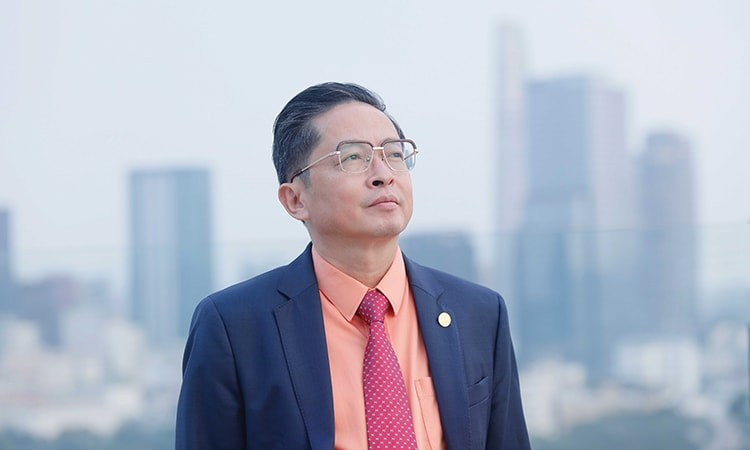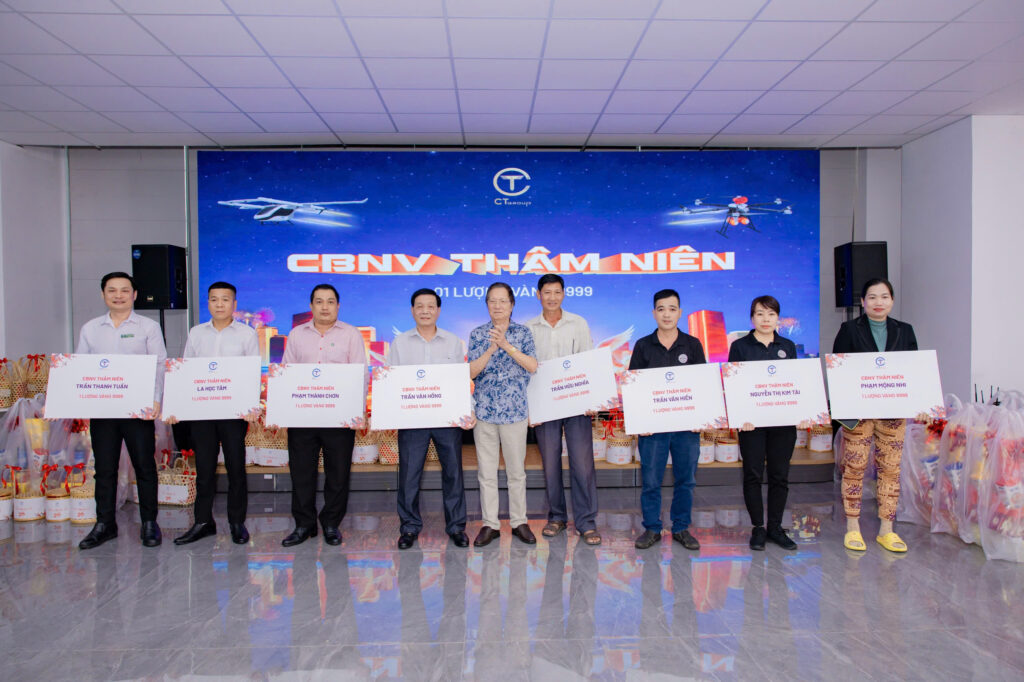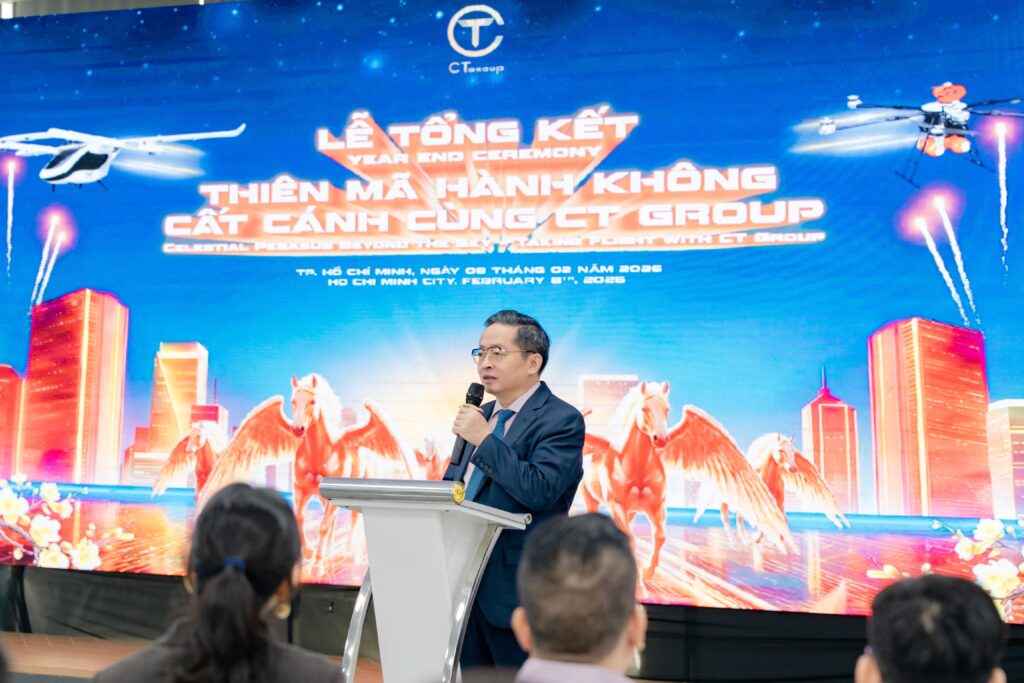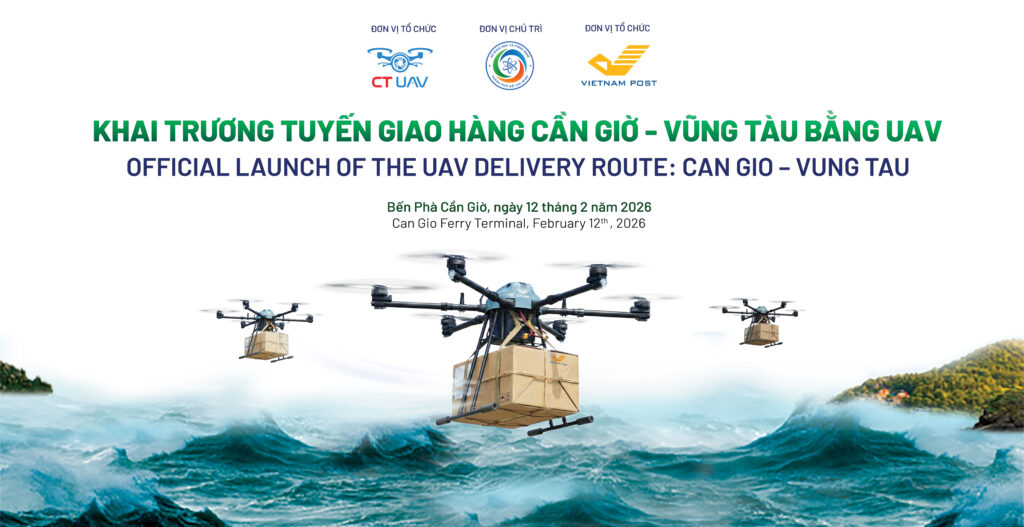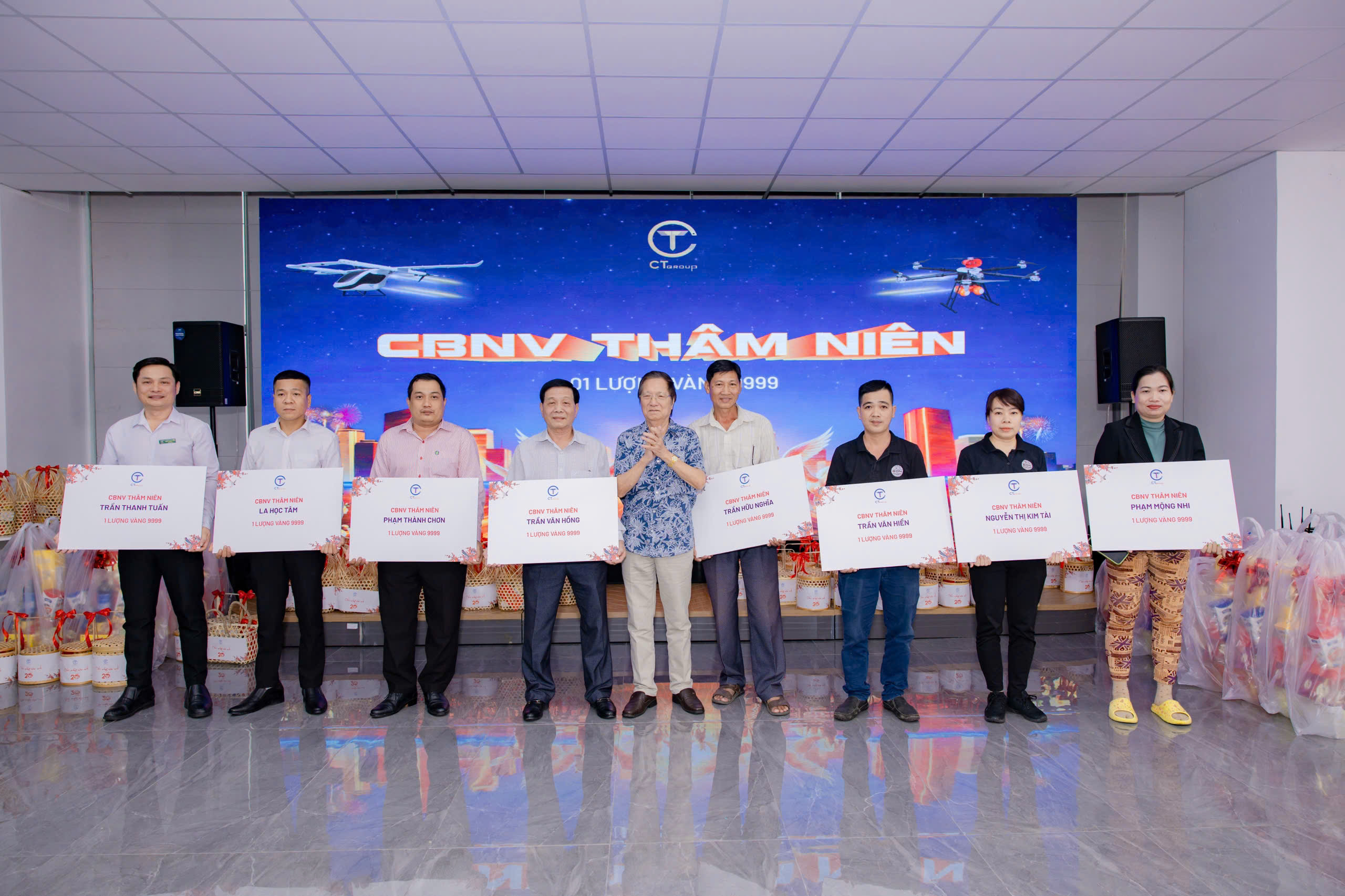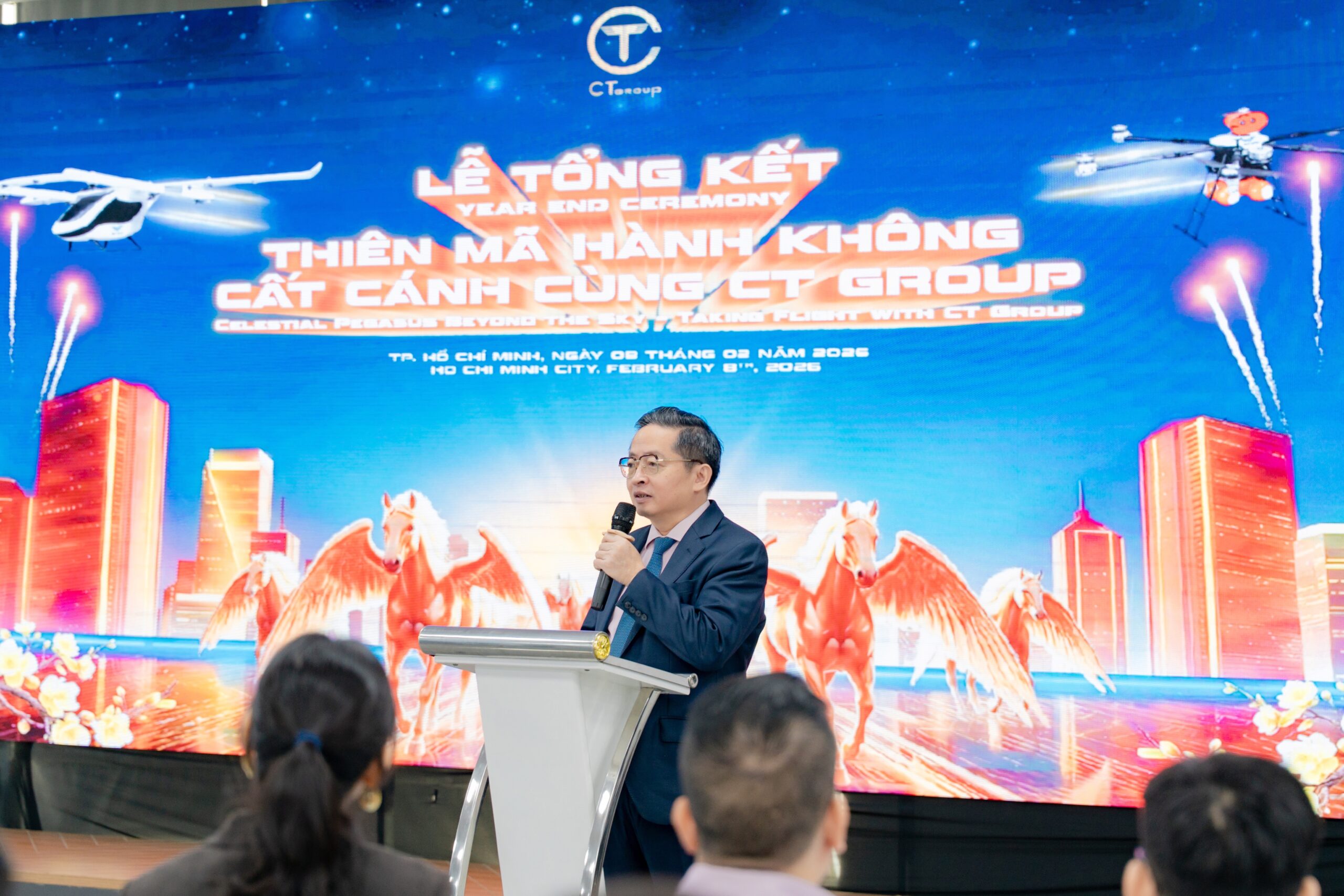On the afternoon of August 22 in Hanoi, Vietnam National University, Hanoi (VNU) organized a scientific conference on the theme “Ensuring Security and Technological Autonomy in Vietnam’s Chip Production during the National Digital Transformation.”

Overview of the conference
Attending the event were the leadership of Vietnam National University, Hanoi, representatives from agencies under the Ministry of Public Security and the Ministry of Defence, member units, leading scientists, high-tech experts, and CT Group.
This was the first forum in Vietnam to systematically approach the issues of security and technological autonomy in chip manufacturing, while connecting management agencies, universities, research institutes, and enterprises to seek solutions for developing Vietnam’s semiconductor ecosystem.
At the conference, experts and scientists shared and discussed the future of Vietnam’s semiconductor industry, proposed future chip research directions, and addressed issues of ensuring security and technological autonomy.
Professor Dr. Tran Xuan Tu, Director of the Information Technology Institute, presented research results on designing low-power secure chips for IoT (Internet of Things) and emphasized the trend of pushing artificial intelligence to the edge (edge AI) to reduce the load on central systems, as well as the development of hardware encryption cores to ensure data security from end devices.
On that basis, Professor Dr. Tran Xuan Tu stressed that cooperation among the “three houses” – universities, enterprises, and management agencies – to promote technology transfer and high-quality human resource training would help Vietnam move deeper into the global value chain.
Associate Professor Dr. Mai Anh Tuan of the VNU University of Engineering and Technology, pointed out that countries and territories such as Taiwan (China), South Korea, Japan, Singapore and China hold and control up to 80% of the critical stages of the global semiconductor value chain.
Positioning Vietnam on this map, our country has advantages in geographical location, stable political environment, and the presence of many major electronics corporations such as Samsung, LG, Foxconn, and Amkor. However, Vietnam is still at the foundational level of the ecosystem, mainly importing most materials and equipment. With its strength in multidisciplinary training, VNU can play the role of supplying elite human resources in key areas such as materials, chemistry, mechanics, and artificial intelligence.
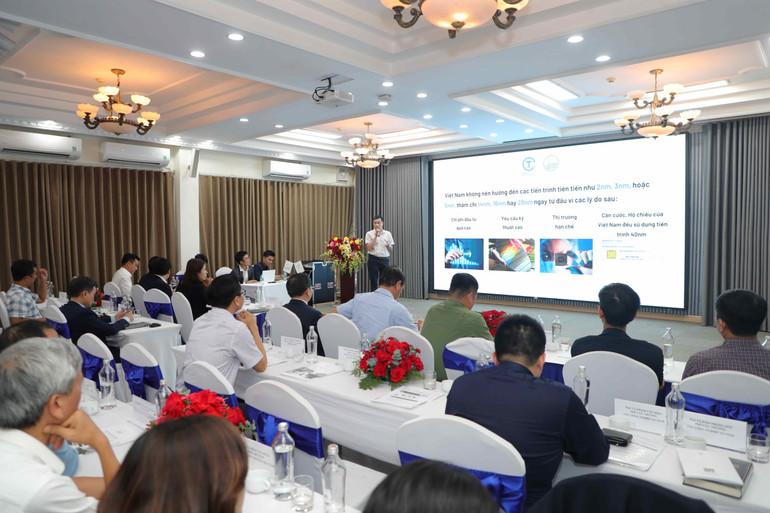
Speakers and scientists presenting at the conference
Sharing about the domestic chip ecosystem, Associate Professor Dr. Thai Truyen Dai Chan, Member of the Scientific Council of CT Group, emphasized that in the digital era, semiconductors have become a fundamental element, likened to the “brain of the world.” Semiconductor chips are the central controllers of all activities in the digital economy.
He noted that the current global chip war is not merely commercial in nature but essentially a fierce geopolitical competition with far-reaching impacts on many countries.
Therefore, Vietnam should not compete directly in the ultra-advanced chip segment, which requires enormous capital and technological foundations, but should focus on practical areas suited to current capabilities. These include: low- and mid-power ICs for sensors, smart devices, and 6G infrastructure; security chips serving e-government, defense, and smart identification; specialized circuits (ASIC, FPGA) for smart transportation, edge AI, and defense applications; as well as energy chips and electric vehicle chips.
Speaking at the conference, VNU President Le Quan affirmed that VNU has pioneered and early implemented the “three-house” cooperation model, focusing on innovation and practical collaboration. According to him, VNU’s mission is shifting significantly: from a cradle of basic sciences to a cradle of science and technology, linking research with professions and the trends of the era.
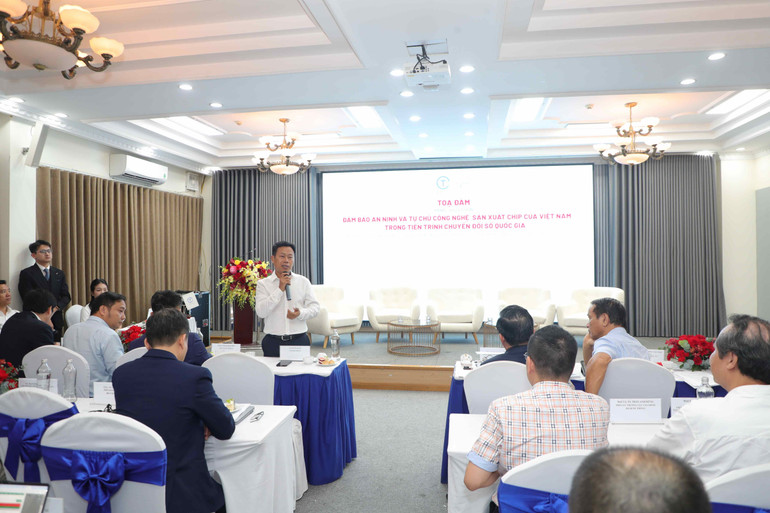
VNU President Le Quan speaking at the conference
President Le Quan further stated that VNU is oriented toward training human resources for key industries, with particular emphasis on strategic fields such as semiconductors, nanotechnology, and quantum technology, which are defined as pillars for the future.
VNU is currently expanding strong international cooperation in cutting-edge technology fields. Recently, VNU and the Moscow Technical University of Communications and Informatics (MTUCI), Russian Federation, partnered to launch a Master’s program in Quantum Communications and UAV-related programs.
At the same time, leading professors from Tsinghua University (China), unicorn technology companies valued in the billions of USD, as well as quantum experts from Russia, have been invited as co-directors of VNU’s newly established Institute of Artificial Intelligence and Institute of Quantum Science.
This demonstrates VNU’s strategy of deep international integration and its determination to build a world-class science and technology hub. VNU aims to allocate an important space at Hoa Lac for developing a comprehensive research center, not only for semiconductors but also for quantum, artificial intelligence, and other emerging technologies.
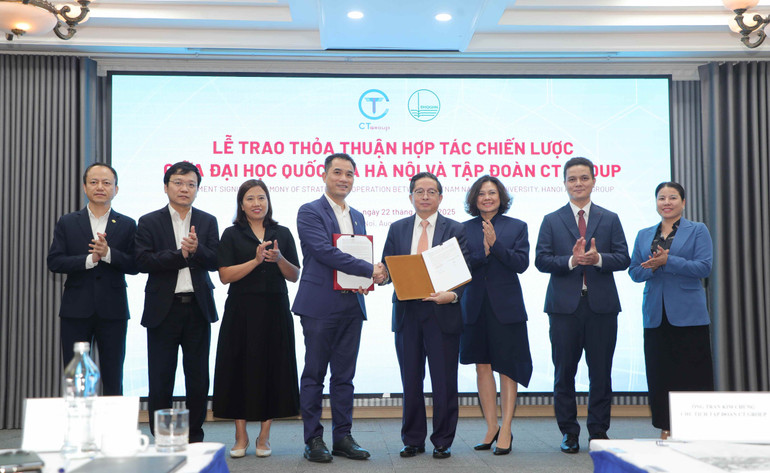
Signing of the cooperation agreement between VNU and CT Group.
At the event, VNU Vice President Pham Bao Son and CT Group Chairman Tran Kim Chung signed the Phase 1 strategic cooperation agreement. The agreement focuses on: joint training and customized courses; cooperation in scientific research and conferences; student scholarships; opportunities for student internships and employment, as well as lecturer support; and joint utilization of facilities and resources to develop new products and services.
The agreement also emphasized the responsibilities of both sides: VNU committed to prioritizing CT Group in related research projects, promoting the company’s brand in cooperation programs, and introducing outstanding students to CT Group. In return, CT Group would allocate financial resources for training, research, scholarships, and recruitment from VNU.
CT Group also pledged to accompany and support VND 100 billion to establish a Joint Lab for research and training in Robotics and Intelligent Control at VNU Hoa Lac, commission VNU scientists to conduct research on next-generation UAVs, renewable energy, chip manufacturing, and quantum technology. This is considered an important resource to promote applied research and commercialization of technology products bearing the mark “Made in Vietnam.”


